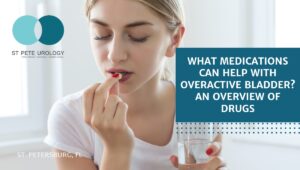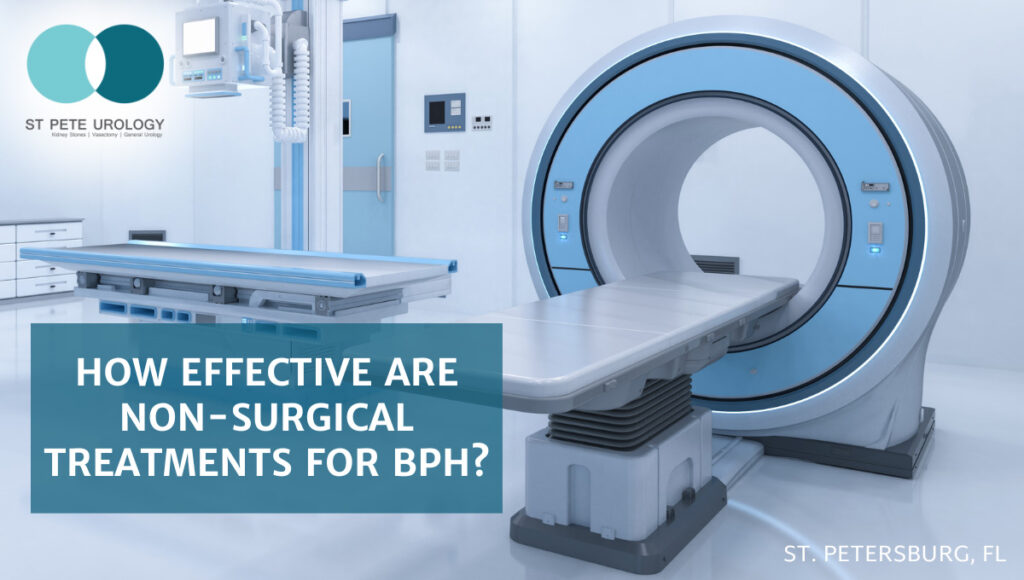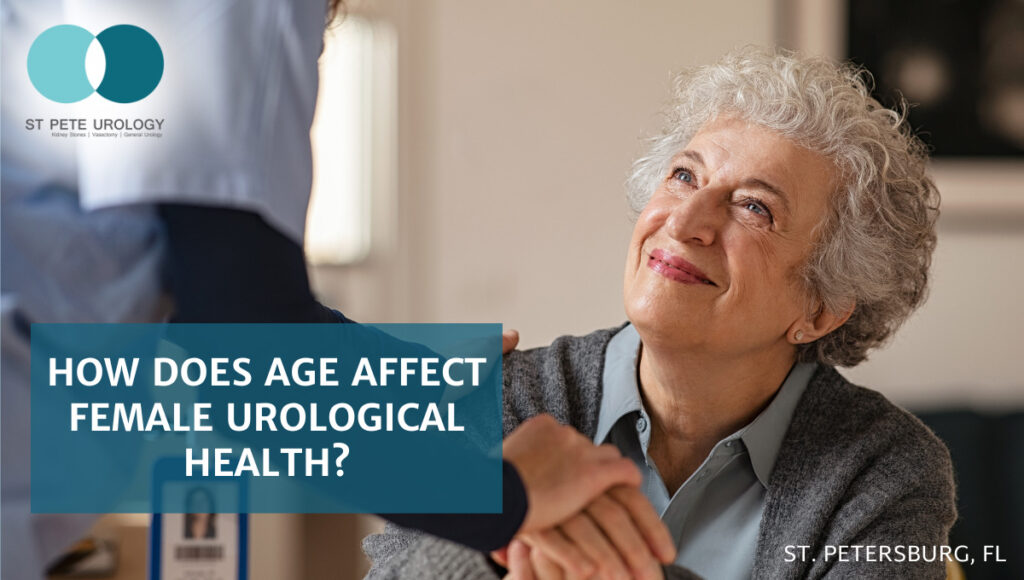Key Takeaways:
1. Overactive Bladder (OAB) is a common condition affecting millions of people across the United States.
2. Anticholinergics and mirabegron are the most common medications prescribed for OAB, but there are other medications available on a case-by-case basis.
3. St. Pete Urology provides comprehensive care for patients with OAB and other urological issues.


I. Introduction
A. Definition of Overactive Bladder (OAB)
OAB is defined as a condition in which the bladder muscles contract involuntarily without warning. This makes it difficult for the person to control their urination. OAB can occur at any age, but it is more common in adults over the age of 40. Additionally, women are more likely to have OAB than men.
B. Describe Overview of OAB Symptoms
The primary symptoms of OAB include a sudden and frequent need to urinate, urinary urgency, and urinary incontinence. These symptoms can make it difficult to go about daily activities, such as going to work or school, exercising, and participating in social events. Other common symptoms of OAB include sleeplessness, difficulty concentrating, and irritability.
II. Symptoms and Diagnosis
A. Symptoms of OAB
The symptoms of OAB can vary from person to person, but the most common symptoms include a sudden and frequent need to urinate, urinary urgency, and urinary incontinence. Other symptoms may include difficulty sleeping, difficulty concentrating, and irritability.
B. Diagnosing OAB
If a person suspects they may be suffering from OAB, they should see their primary care physician or a specialist such as a urologist. The doctor may order a variety of tests, such as a urinalysis or bladder ultrasound, to determine if the person has OAB.
III. Treatment Options for OAB
A. Self-Care Measures for OAB
In many cases, self-care measures can help reduce the symptoms of OAB. These include increasing fluid intake, managing stress, avoiding certain foods and drinks that can irritate the bladder, avoiding alcohol, and using the bathroom regularly.
B. Medications for OAB
In some cases, medications may be prescribed to help manage the symptoms of OAB. These medications can be divided into two categories: anticholinergic medications and mirabegron.
1. Anticholinergic Medications
Anticholinergic medications are medications that work by blocking the action of a neurotransmitter called acetylcholine. This helps to relax the muscles of the bladder and reduce the urge to urinate.
2. Mirabegron
Mirabegron is a medication that is classified as a beta-3 agonist. It works by stimulating the bladder muscles, allowing them to hold more urine. This helps reduce the urge to urinate.
3. Other Medications
Other medications may be prescribed if the patient does not respond to anticholinergics or mirabergon. These medications are typically used on a case-by-case basis and may include antispasmodics, antidepressants, and alpha-blockers.
IV. Side Effects of OAB Medications
A. Anticholinergic Medications
Common side effects of anticholinergic medications include dry mouth, constipation, blurred vision, dizziness, and difficulty concentrating. These medications can also interfere with the absorption of certain vitamins and minerals from the gut.
B. Mirabegron
Common side effects of mirabegron include headache and flushing. These side effects usually resolve on their own, but if they persist you should speak to a healthcare provider.
V. Conclusion
A. Wrap Up Overall Information on OAB Medications
In conclusion, there are a variety of medications available to help manage the symptoms of OAB. Anticholinergic medications and mirabegron are the most commonly prescribed medications, but other medications may be used in certain cases. It is important to discuss all treatment options with a doctor and to be aware of any potential side effects or contraindications.
At St. Pete Urology, we provide comprehensive care for patients with bladder control problems and other urological issues. Our board-certified urologists and highly trained staff are prepared to help you take control of your bladder. We offer the latest treatment options and provide personalized, compassionate care. Contact us today to learn more about how we can help you manage your OAB symptoms.
References:
- “Overactive Bladder (OAB) in Women – Urology Associates.” https://www.denverurology.com/female-urology/oab/.
- “Anticholinergic Medications for Overactive Bladder – Healthline.” https://www.healthline.com/health/overactive-bladder/anticholinergic-medications.
- “Overactive Bladder | Polyuria – MedlinePlus.” 15 Sep. 2016, https://medlineplus.gov/overactivebladder.html.




